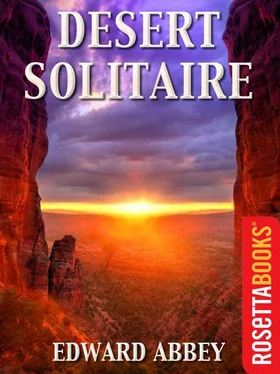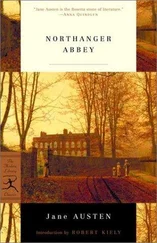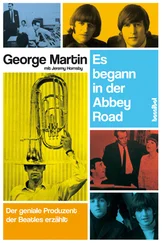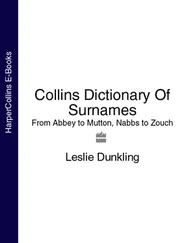Abbey, Edward - Desert Solitaire (Edward Abbey Series )
Здесь есть возможность читать онлайн «Abbey, Edward - Desert Solitaire (Edward Abbey Series )» — ознакомительный отрывок электронной книги совершенно бесплатно, а после прочтения отрывка купить полную версию. В некоторых случаях можно слушать аудио, скачать через торрент в формате fb2 и присутствует краткое содержание. Год выпуска: 2011, Издательство: RosettaBooks, Жанр: Старинная литература, на английском языке. Описание произведения, (предисловие) а так же отзывы посетителей доступны на портале библиотеки ЛибКат.
- Название:Desert Solitaire (Edward Abbey Series )
- Автор:
- Издательство:RosettaBooks
- Жанр:
- Год:2011
- ISBN:нет данных
- Рейтинг книги:4 / 5. Голосов: 1
-
Избранное:Добавить в избранное
- Отзывы:
-
Ваша оценка:
- 80
- 1
- 2
- 3
- 4
- 5
Desert Solitaire (Edward Abbey Series ): краткое содержание, описание и аннотация
Предлагаем к чтению аннотацию, описание, краткое содержание или предисловие (зависит от того, что написал сам автор книги «Desert Solitaire (Edward Abbey Series )»). Если вы не нашли необходимую информацию о книге — напишите в комментариях, мы постараемся отыскать её.
Desert Solitaire (Edward Abbey Series ) — читать онлайн ознакомительный отрывок
Ниже представлен текст книги, разбитый по страницам. Система сохранения места последней прочитанной страницы, позволяет с удобством читать онлайн бесплатно книгу «Desert Solitaire (Edward Abbey Series )», без необходимости каждый раз заново искать на чём Вы остановились. Поставьте закладку, и сможете в любой момент перейти на страницу, на которой закончили чтение.
Интервал:
Закладка:
Back in the boats, sprawled out comfortably on our baggage, nothing lost but the road map—and there are no gas stations in Glen Canyon anyhow—we drift onward without further effort, paddles inboard and at rest. The surface of the river is wide and gleaming, slick as glass; an immaculate stillness pervades the canyon, pointed up deftly now and then by a gurgling eddy near the shore, the call of a bird.
Smoking peacefully, we watch the golden light of afternoon climb the eastern wall as the sun goes down beyond the rim to the west. An early evening breeze rustles through the willows ashore and we hear again the tinkling music of canyon wrens—like little silver bells falling across a glockenspiel—no, like wilderness lorelei—calling down to us from the rimrock, sweetest of all bird songs in the canyon country.
Other voices also speak: queer squawks and honkings from the thickets, sounds we cannot identify until we see, a little later, a great blue heron flap its wings among the lavender plumes of a tamarisk tree.
“Ralph Newcomb,” I say, “do you believe in God?”
“Who?” he says.
“Who?”
“Who.”
“You said it,” I say.
An owl. Ravens. More canyon wrens. The splash of fish breaking the surface. Lizards palpitating on the rocks. And once we see, between us and the far shore, something sleek and dark following its nose upstream—a beaver. The same that lured the mountain men—Robidoux, Jim Bridger, Jedediah Smith—into these parts more than a century ago.
The river bears us quietly along, the canyon fills with shadow and coolness. The sky above turns a deeper darker blue as the last of the sunlight glows on the domes and turrets and elephant-backs of the Navajo sandstone above the Wingate cliffs. We begin to think about food and a camp for the night.
When a beach of white sand comes in sight, backed with a stand of green young willows, we get out the paddles and work toward it, paddling strenuously across the current. As will usually happen, we are on the wrong side of the river when we want to make a landing. And it’s a wide river this time of the year. And with Ralph on the upstream side of our double boat, I have to paddle twice as hard as he does just to keep even.
Closing in on the beach, I jump out and wade ashore, towing the boats onto the sand. We tether them to a clump of willows, unload and prepare to camp. My bedroll is a little wet but everything else, well wrapped in tarpaulins, is dry, and our feelings of pleasure and satisfaction are as great as our appetite for supper.
It is a beauteous evening, calm and free . We build a small fire of dead willow branches and propitiate the gods of river and canyon with the incense of woodsmoke, an offering with which, being intangible beings, they are content; we the worshipers, of baser stuff, fry and eat the actual beans, corned beef and eggs. A crude meal, no doubt, but the best of all sauces is hunger. To us it seems a shade better than anything available at Sardi’s or Delmonico’s. What’s more we aren’t graveled for leg room.
We make the coffee with river water, dipping a canful from among the rocks and letting it set for a time until the silt settles to the bottom. For entertainment we have the murmur of the river, the drone of cicada and amphibians, the show of nighthawks plunging through the evening gulping bugs. Afterwards we sit by the fire until the fire gives out, listening, smoking, analyzing socioeconomic problems:
“Look here, Newcomb,” I say, “do you think it’s fitting that you and I should be here in the wilds, risking our lives amidst untold hardships, while our wives and loved ones lounge at their ease back in Albuquerque, enjoying the multifold comforts, benefits and luxuries of modern contemporary twentieth century American urban civilization?”
“Yes,” he says.
I rebuild the fire and drape my sleeping bag above it on a willow bough, smoking it good and proper. When it’s ready I scoop two shallow holes in the sand, one for the hipbones and one for the shoulder blades, lay out the sleeping bag and turn in. Ralph, peaceful as a hanging judge, is already sound asleep. For myself I choose to listen to the river for a while, thinking river thoughts, before joining the night and the stars.
Morning on the river: up with the dawn, before the sun, Ralph still sleeping, strange invisible birds calling and croaking from the bush, I wash last night’s dishes in the muddy river. And why not? That same force which corraded a gorge five thousand feet deep through the Kaibab Plateau will also serve to scour the grease from the tin plates of the Abbey-Newcomb Expedition. The Colorado has no false pride.
Then breakfast: bacon and eggs, fried potatoes, coffee. The unknown birds continue to creak and chirrup. Some I begin to recognize—a mockingbird, killdeer, Mexican finches. Also the usual and prevalent canyon wrens and a few magpies and ravens.
Ralph awakes, stirred to life by the aroma of food, takes a bath in the river, combs and pomades his hair, his long black evil sheepherder’s beard. We eat.
Afterwards as we pack and load the boats, sun coming up over the rim, we begin to feel the familiar terrible desert thirst. We drink the last of the spring water in our canteens and, still thirsty, look to the river, that sombre flow the color of burnt sienna, raw umber, muy colorado , too thin to plow—as the Mormons say—and too thick to drink. But we drink it; we’ll drink plenty of it before this voyage is over.
The sun rises higher, fierce on our faces; the western wall blazes like hot iron. We shove off, keeping to the shady side of the canyon, and commence the second day of our journey.
Why, we ask ourselves, floating onward in effortless peace deeper into Eden, why not go on like this forever? True, there are no women here (a blessing in disguise?), no concert halls, no books, bars, galleries, theaters or playing fields, no cathedrals of learning or high towers of finance, no wars, elections, traffic jams or other amusements, none of the multinefarious delights of what Ralph calls syphilization. But on the other hand most anything else a man could desire is here in abundance: catfish in the mainstream and venison in the side canyons, cottonwoods for shade and shelter, juniper for fuel, mossy springs (not always accessible) for thirst, and the ever-changing splendor of sky, cliffs, mesas and river for the needs of the spirit.
If necessary, we agree, a man could live out his life in this place, once he had adjusted his nervous system to the awful quietude, the fearful tranquillity. The silence—meaning here not the total absence of sound, for the river and its canyons are bright with a native music—but rather the total absence of confusion and clamor, that would be the problem. What Churchill spoke of as “ bloody peace ”—could we bear it for very long? Yet having known this, how could we ever return to the other?
“Newcomb,” I say, “you’re condemned. You are doomed.”
“So are you,” he says.
“Let’s drink to that. Where’s that rum we were going to bring along?”
“Stowed with the life jackets.”
“And the case of beer we were going to tow instead of a dinghy?”
“We drank it all back in Albuquerque.”
The thirst. I dip a can in the river under my elbow and place it on the gunwale (so to speak) of my little rubber boat, giving the mud in the water time to settle out. The river at this point is so steady and serene that the can of drinking water hardly trembles, though it’s balanced on a rounded surface.
The current carries us on its back smoothly south and west toward the Gulf of California, the Sea of Cortez, but with many a wonderful meander on the way. Occasionally we lay a paddle over the side, drop the blade in the water and with the slightest, most infinitesimal of exertions turn the double boat for a view in a different direction, saving ourselves the trouble—somewhat greater—of turning our heads or craning our necks.
Читать дальшеИнтервал:
Закладка:
Похожие книги на «Desert Solitaire (Edward Abbey Series )»
Представляем Вашему вниманию похожие книги на «Desert Solitaire (Edward Abbey Series )» списком для выбора. Мы отобрали схожую по названию и смыслу литературу в надежде предоставить читателям больше вариантов отыскать новые, интересные, ещё непрочитанные произведения.
Обсуждение, отзывы о книге «Desert Solitaire (Edward Abbey Series )» и просто собственные мнения читателей. Оставьте ваши комментарии, напишите, что Вы думаете о произведении, его смысле или главных героях. Укажите что конкретно понравилось, а что нет, и почему Вы так считаете.












